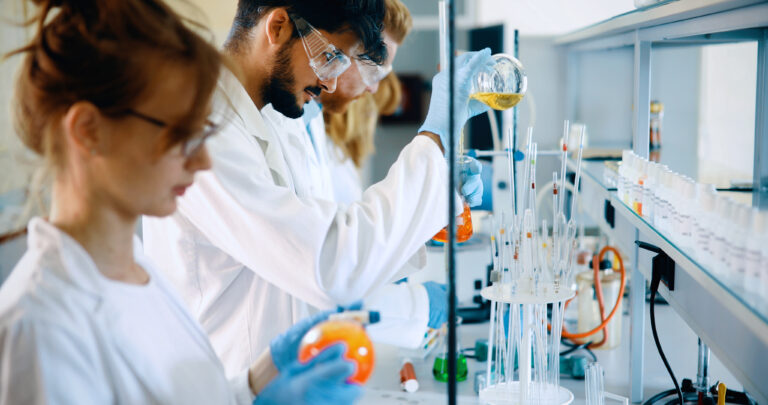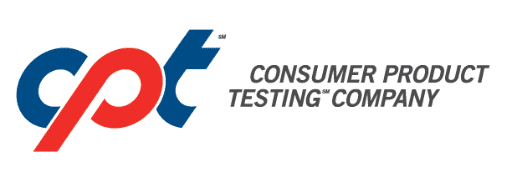What is a Raw Material?
A raw material is a basic material that is used to make a product. The formulation of each product, whether it be a drug, cosmetic/personal care product or dietary supplement is a unique combination of raw materials. Active ingredients, inactive ingredients, preservatives and processing aids all fall under the general category of Raw Materials.
A raw material can take the form of either a ‘single’ compound (e.g., Propylene Glycol or Acetaminophen) or a ‘mixture’ of compounds (e.g., a ‘fragrance’ or a ‘proprietary blend’ having a specified function).
What is Raw Material Testing and Why is it Important?
Raw material testing is a process whereby the physical, chemical and microbiological properties of a material are determined through testing and the obtained results are compared to a pre-established specification for that material.
Although raw material testing requirements vary by industry, it is important to verify the quality of raw materials used in all industries since the quality of any product is highly dependent upon the quality of the raw materials of which it is comprised.

What is Meant by the “Grade” of a Raw Material?
Many raw materials are commercially available in different ‘grades’ which refer to the specific quality standard the raw material is claimed to meet. Among the highest quality standards are compendial grades such as USP (United States Pharmacopeia), NF (National Formulary), FCC (Food Chemicals Codex), EP (European Pharmacopeia) and other US or International Standards. Among the lowest raw material quality standards are Chemical Grade or no grade at all.
What is meant by the ‘Identity’ and ‘Purity’ of a Raw Material?
‘Identity’ of a raw material refers to that which the material is purported to be. ‘Purity’ of a raw material refers to freedom from adulteration or contamination. The confirmation of a raw material’s identity and purity are established through testing.
Supply Chain Quality Management
The assurance of product quality begins with the concept of Supply Chain Quality Management. This includes qualification of raw material vendors, validation of the test results that vendors report on their Certificates of Analysis, and a program of ongoing quality testing and monitoring.
Supply Chain Quality Management ensures a more efficient use of production resources and can eliminate batch rejections due to poor raw material quality. Manufacturers of pharmaceutical and other therapeutic products are required to monitor the quality of the raw materials that are used in their products.
Though not currently required of manufacturers of cosmetic and personal care products, many understand that monitoring the quality of raw materials used in their products makes good business sense and as a result, conduct raw material testing with the hope of reducing production delays, downtime, batch reworking, rejections and missed shipping dates.
Does Supply Chain Quality Management Require that Every Vendor Lot of Raw Material be Fully Tested?
No, it does not. A well-designed program of Supply Chain Quality Management provides certainty as to the quality of the raw materials that each vendor provides, the accuracy of each Certificate of Analysis that is issued, and it allows for “reduced” and “skip-lot” testing of incoming raw materials. “Reduced Testing” refers to a policy whereby not every chemical, physical or microbiological property of a raw material is tested. “Skip-Lot Testing” refers to a policy whereby not every vendor lot of a raw material is tested.
How to Get Started with Raw Material Testing
Learn your industry’s minimum requirements for raw material testing.
Pharmaceutical Manufacturers are required to conduct at least one appropriate test to confirm the identity of each vendor lot of every raw material that it uses to manufacture drug products. Each vendor lot of a raw material that is liable to microbiological contamination that is objectionable in view of its intended use must be subjected to microbiological testing before use. Additionally, the purity, strength and quality of each vendor lot of “active ingredient” must be verified.
Cosmetic/Personal Care Manufacturers are required to test or examine raw materials prior to use to assure the absence of contamination with filth, microorganisms or other extraneous substances to the extent necessary to prevent adulteration of the finished product. The conducting of at least one appropriate test to confirm the identity of each vendor lot of every raw material is “expected” by FDA but not specifically required at this time.
Dietary Supplement Manufacturers are required to conduct at least one appropriate test to verify the identity of each vendor lot of every raw material that it uses to manufacture dietary supplement products. Each vendor lot of a raw material that is liable to microbiological contamination that is objectionable in view of its intended use must be subjected to microbiological testing before use.
Create a written specification for each raw material.
The written specification must indicate the name and grade of material to be purchased, each physical, chemical and microbiological property to be tested for, the test method to be employed, and the acceptance criteria. This applies to all industries.
Establish a Supply Chain Quality Management Program.
Your supply chain quality management program must meet your industry’s minimum requirements for raw material testing and satisfies your Organizational expectations. This Program should include a process for qualifying vendors (Pharmaceutical Industry), verifying the accuracy of Certificates of Analysis (all Industries) and a testing plan (all Industries).
Which Raw Materials Does CPT Test?
CPT has a long history of conducting testing on raw materials of all types, including but not limited to pharmaceutical and dietary supplement “active” ingredients, preservatives, botanical ingredients, inactive ingredients, processing aids, solvents, polymeric resins and more. CPT always recommends to its clients that wherever possible, official compendial methods be employed in the testing of raw materials. Where this is not possible, validated methods, or those published in peer-reviewed literature are a suitable alternative.
Our Raw Material Testing Capabilities
CPT maintains state-of-the-art Analytical Chemistry, Microbiology, Human Clinical, Photobiology, and In-Vitro Toxicology testing laboratories, all of which are at your disposal in the determining of the quality and safety of the raw materials you utilize in your products.
Using our specialized departments and well-respected Management Team, we have the capability of testing a wide range of raw materials with respect to their physical, chemical and microbiological attributes; whether or not they contain undesirable contaminants; whether or not they promote irritation or exhibit characteristics for allergenicity, photo-toxicity or photo-allergenicity. Our in-house experts are always ready to offer guidance and to address any questions or concerns you may have regarding the testing of your raw materials.
CPT is a qualified and experienced testing lab that ensures raw material analyses are conducted in strict accordance with compendial, client or in-house methodologies, and in full compliance with all applicable regulations. Additionally, CPT is ISO/IEC 17025:2017 accredited, with many of the most common raw material tests included within our Scope of Accreditation.
Testing Techniques Employed by CPT
Physical Testing – Examples of which are Specific Gravity, Viscosity, Flash Point, Particle Size, Refractive Index and Optical Rotation.
Wet Chemistry Testing – Examples of which are titrations and extraction and/or reaction processes leading to spectroscopic or gravimetric analysis.
Instrumental Analysis – Use of modern instrumentation such as HPLC, UPLC, GC, UV/Vis Spectrophotometry, ICP-MS (or -OES), AA/Graphite Furnace, FTIR, and DSC.
Classical Microbiological Testing – Examples of which include Microbial Content using USP <61> and <62> and other standards, LAL Endotoxin and Ames Mutagenicity.
Human Repeated Insult Patch Testing (HRIPT) – Examples of which include Topical Irritation, Allergenicity, Phototoxicity and Photoallergy testing.
In Vitro Toxicology Testing – Non-animal testing employing US and international methodologies for determining irritation and other undesirable potentials.
Commonly requested USP raw materials tests include:
Residual Solvents <467>
This testing is conducted to confirm that if present, residual solvents do not exceed acceptable levels in raw materials.
Elemental Impurities <233>
This testing is conducted to confirm that if present, elemental impurities do not exceed acceptable levels in raw materials.
Assays and Related Compounds/Impurities (Monograph-specific)
This testing is conducted to confirm that active ingredient and preservative raw materials are of the proper strength/potency, and that related compounds /impurities do not exceed acceptable levels.
Why Choose CPT for your Raw Material Testing?
- More than 47 years of testing expertise under the same Ownership/Management.
- Five (5) highly specialized, state-of-the-art laboratories directed by well-seasoned professionals.
- High level of regulatory compliance relating to GMP, GLP and GCP.
- ISO/IEC 17025:2017 accredited with many raw material tests included within our Scope of Accreditation.
- Flexible turn-around times.
- Regulatory and Industry-savvy guidance available to all clients at all times.
- Custom-tailored testing programs.
Think of CPT as an extension of your Quality Team. Accurate testing conducted within a highly compliant laboratory environment. Raw material testing of the highest value. We can even assist you in the design of a Supply Chain Quality Management Program that is right for your Organization. Contact us at your earliest convenience.
